Biogas Working Groups
The World Biogas Association invites like-minded professionals from around the biogas industry to join our Working Groups. Read below to discover more about the leaders of the groups, learn about the core topics and find out how you can get involved.
We encourage members and non-members to express interest in our Working Groups by filling-in the form below. WBA members have the option to get involved in as many groups as you like. If you’re a non-member, then after you fill-in the form, please contact us at info@worldbiogasassociation.org to discuss membership.
WBA’s Working Groups
Chair: Amaya Arias-Garcia
This Working Group will explore education of the general public about the basics of biogas – what it is and why it is important. It will also provide guidance on how best to access the biogas industry. This is group is ideal for for academics, policymakers and industry leaders.
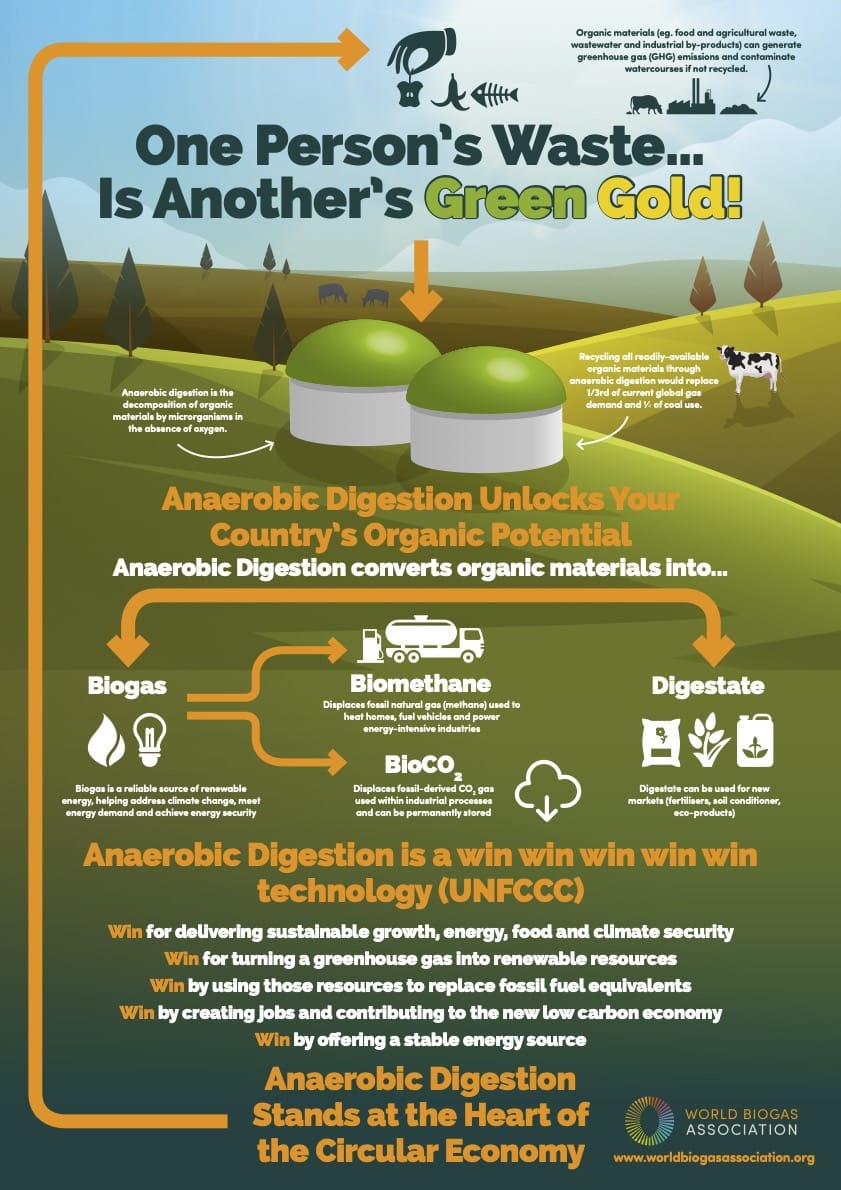
Chair: Keith Simons
Deputy Chair: Daniel Lee
This group’s focus is the future of the biogas industry: from short-term innovations to long-term trajectories. Participants will identify biogas’s “grand challenges” and seek out the changes that could deliver the largest impact.
Chair: Suad Al-Hosni
The objective of this group is to attract, support and empower more women in jobs in the burgeoning global biogas sector. Participants will explore developing partnerships with universities to create awareness of career opportunities for process engineers, designers, project managers and other related jobs in the sector. The group will also delve into developing a mentorship program for women in the industry. Other areas for consideration include setting standards for the workplace to ensure women are treated with respect and dignity. All women in the industry are welcome to participate!
Profiles
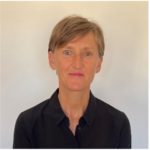
Amaya Arias Garcia
Business Development Manager, Nortegas Green Energy Solutions
Santander, Cantabria, Spain
Area of work
Renewable gases – Biomethane and Hydrogen
Bio
Role Description
I work for Nortegas Green Energy Solutions. Nortegas is a gas distribution company in the North of Spain. My mission is to develop the renewable gas market in Spain to displace the natural gas and replace it with renewable gas.
In the past I have worked in resource recovery and over the last 15 years I have focused in developing anaerobic digestion plants. Given this experience my focus within Nortegas is biogas but I am taking the opportunity to also get involved in the Hydrogen market when I can. I also represent the World Biogas Association in Spain.
Why is female representation in biogas important?
Within the biogas industry there are lots of different roles and disciplines. Some of them have a strong female representation but others have a very thin female presence, for instance in construction or plant operations. This is not only a missed opportunity as women have so much to offer but the imbalance also makes more difficult for those women already in the industry. Having a balanced representation ensures that everyone is listened to and ensures that women´s needs are considered. Something as simple as having a female toilet is not a given on a construction site!
Career Path
2018 – 2021: AD Engineering Design Manager – Suez Water Technology Solutions, Global role.
2015 – 2018: Technical Director – Goals Project Management and Engineering Support, UK
2012 – 2015: Head of Technology – Tamar Energy, UK
2010 – 2012: Project Manager and Commissioning Manager – TEG Environmental Ltd, UK
2007 – 2010: Principal Process Engineer – RPS Group Ltd, UK
2003 – 2007: Technologist and Project Manager – Pera Ltd, UK
Educational Background
1998 – 2002: PhD in Mechanical / Automotive Engineering
Centre for Automotive Engineering Research and Technology (Coventry University, UK) in collaboration with ArvinMeritor Ltd.
1996– 1998: Master Degree in “Environmental Monitoring and Assessment”
Coventry University, UK
1996 –1997: BSc (Hons) in “Environmental Chemistry”
Coventry University, Coventry, UK
1988 – 1993: BSc (Hons) “Industrial Chemical Engineering”
Cantabria University, Cantabria, Spain
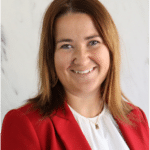
Cecilie Engell Soerensen
Commercial Advisor – Waste & Biogas Advisory, the Trade Council of Denmark, North America, Embassy of Denmark
Washington D.C. USA
Area of Work
Business Development & Consultancy
Bio
Role description
I connect the Danish and American biogas industry in order to scale biogas globally. I primarily support Danish companies in entering the biogas industry in North America by identifying projects, partners, and helping them navigate this particular export market. My team and I run a Biogas Alliance that currently consists of seven Danish companies that provide complimentary solutions related to organics management through anaerobic digestion.
Why is female representation in biogas important?
For the last 10 years, I have lived abroad five times, and my entire international experience has ensured me that diversity is a strength in all aspects, so for me personally, female representation in biogas is also a necessity when it comes to driving and developing a global sector like biogas across the world.
Career path
2020-present: Commercial Advisor; Waste & Biogas Advisory, Danish Embassy in WasD.C., USA
2017-2020: Group reservations & Event Coordinator, Admiral Hotel, Denmark
2018-2019: Trade Intern, Danish Embassy in Santiago, Chile
2015-2017: Front Desk Receptionist, Hotel Tiffany, Denmark
2015-2016: Mentor at Copenhagen Business School & MentorDenmark, Denmark
Educational background
2019: Master of Science: Business, Language & Culture; Business and Development Studies; Spanish & English, Copenhagen Business School
- Internship: Trade Intern at The Royal Danish Embassy in Santiago de Chile, Chile.
2017: Bachelor of Arts: European Business, Spanish, English & Danish, Copenhagen Business School
- Exchange: University of Valencia; Economics & International Business Law
2013: Upper Secondary Education: High School of Naestved; Spanish, English & Geography

Charlotte Morton
Chief Executive, World Biogas Association
London, United Kingdom
Area of Work
Strategy and business management, stakeholder engagement, business development
Bio
Role description
I lead our team at the World Biogas Association, working hard to ensure that the work we do will have the biggest impact, engaging with our Council and members to understand their challenges, how we can best support them through our work and facilitate collaboration with third party stakeholders. I frequently make presentations at conferences and attend meetings with global organisations such as the UNFCCC, CCAC, IEA, GMI and participate in COPs on behalf of the association.
Why is female representation in biogas important?
As so many studies show, a minimum of 20% of women at board level improves business performance. Meeting the Global Methane Pledge will require all businesses in the biogas industry to outperform and grow exponentially, so they will need to ensure as diverse an employee base as possible, including women.
Career path
Following a gap year in Guatemala leading a weaving programme for Highland Indians I started my legal training to become a solicitor in the UK. After practicing as a solicitor for 10 years, latterly for a US law firm, and completing an MBA at London Business School, I set up my first business, WhizzGo, which offered cars for hire by the hour near you to reduce car ownership. Following the financial crash, which resulted in the business being acquired by a global car hire firm, I was asked to set up the business side of the UK’s anaerobic digestion association (ADBA). A few years ago the need for a global association to represent this critically important industry became apparent, which lead to the establishment of the World Biogas Association, and I am now in the process of moving over to run that full time.
Educational background
- A degree in English and French Law from the London School of Economics and Political Science (LSE)
- Diplome d’Etudes Juridiques Francaises, University of Strasbourg
- Law Society Finals
- MBA from London Business School.
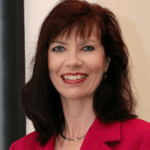
Darlene Gering
Managing Director, Octaform
Vancouver, Canada
Area of Work
Management, strategy, business development, partnerships
Bio
Role Description
I lead the team at Octaform, a global leader in biogas tanks. My role involves management and oversight of the operations, sales, engineering, production, and finance teams. I engage in partnership meetings with sales agents and customers all over the world. My focus is on growing the business, reducing operational costs, and increasing our efficiency. I am involved in creating the strategic and sales plans for the company. I have been involved in expanding global production capacity to keep up with our rapid growth.
Why is female representation in biogas important?
Studies show that organizations with women in leadership roles outperform those with only males. The global biogas sector has a strong role to play and needs to scale rapidly to mitigate methane emissions in addressing the climate crisis. Women can play a major role in accelerating this growth in the sector, addressing the inequality gap of women in green tech.
Career Path
Starting her career with Dun & Bradstreet, she was awarded as one of their top sales executives globally. Following her desire to live and work in Latin America she founded D&R International S.A. in Costa Rica which became Dun and Bradstreet’s fastest growing agency in Latin America. She then sought a way to combine her entrepreneurial skills with community impact in her role at the Burnaby Board of Trade. As the former CEO of the Burnaby Board of Trade, Darlene pioneered adoption of the triple bottom line resulting in the fastest growing board of trade/chamber in Canada, tripling membership in three years to 1000 organizations. Darlene was President of the Burnaby 2012 BC Seniors Games, she lead 2000 volunteers to host the most memorable, inclusive and sustainable Games for 3800 athletes in the 25 year history of the Seniors Games. Darlene was the co-founder of Thriving Generations Employment Agency, a social enterprise that helped moms in poverty transition back to work. Darlene joined Octaform in 2019 and has restructured the company with a major focus on the growing biogas sector.
Educational background
University of Alberta – studied economics and business
York University, Toronto, Canada – BA in Business, Marketing Honours

Elnaz Bahadori
Project Leader & International Business Developer, Renergon
Lengwil, Switzerland
Area of work
Biogas, biomethane and biochar markets
Bio
Role description
I started my career path in the biogas industry in Spring 2020 with Renergon in Switzerland. Renergon is one of the pioneers in the solid-state anaerobic digestion and with its own patented RSD® technology is offering one of the most innovative ways to treat organic waste with the aim of biogas & high-quality compost production. Since last year, I focus mainly on company’s business development strategies worldwide. My main role is to seek new market opportunities and to develop new short/long term strategies in the field of Biogas, Biomethane & Biochar.
The outcome of these business strategies is to lead the company’s goal toward Biogas upgrading & Biomethane production. In this regard, with the support of our technical & engineering department we are developing the Biogas upgrading unit based on PSA technique with the relatively low investment & operation cost. This could be an interesting alternative for many biogas plants which are currently running with CHP units.
In the framework of my business development activities, I am also responsible of Renergon’s carbon market group. We have established together a working group for screening the different carbon markets, CO2 emission saving calculations and CO2 emission certificates, mainly for AD biogas plants. The aim of this group is to find the most profitable business model for biogas production not only for company’s future strategies, but also for our existing clients in the biogas sector. We believe that the impact of the carbon credit revenues will be an important booster in the biogas sector.
Why is female representation in biogas important?
Women are more patient in their job, and they are prouder of their accomplishments and the honor and feeling of satisfaction which their role can bring to them. The biogas industry is a mix of engineering details and creativity in finding the most sustainable way for waste treatment and reducing carbon footprint. Both can be a perfect match for an engaged woman driven with a sprit of environmental respect.
Career path
In 2014 I received a full fund scholarship from the University of Politecnico di Torino in Italy, to pursue my higher education career as a PhD in Materials Science. My focus was on nanomaterial synthesis & surface characterization. Within my PhD career I did several research collaborations with Italian & Swiss universities. The aim of these collaborations was to find out the best applications for wastewater treatment or CO2 adsorption for specific type of nanomaterial synthesised by our research group. The outcome of my PhD career was several publications in high impact factor journals.
My PhD career opened many doors of opportunities for me, from which I have been selected as a winner of Postdoctoral fellowship at the University of Milan. There I had an opportunity to work in department of material engineering & Industrial chemistry with an expert high level academic group. I was responsible for several research projects in a collaboration with the University of Genova, Politecnico di Milano and University of Stuttgart. The focus of my research activities was photocatalytic Synthesis of Robust Catalyst to Upgrade Low-Value Biomass Stream & photocatalytic H2 production from waste carbohydrates.
The postdoctoral period opened my eyes towards waste management and in particular biofuels formation from waste. I consider this period as a successful transition in my career path from academy to industry.
Below are the summary of my achievements withing 2 years of my postdoctoral career:
- I have Published at least 16 articles in peer reviewed journals, from which in 6 I was the first author.
- I won the award of “The most innovative ideas to manage the problems related to the nitrogen cycle” in the ICS2019 winter school
- I authored the 15th chapter of the book named “Nanomaterials for the Detection and Removal of Wastewater Pollutants” from Elsevier.
After moving to Switzerland, I was so determined to continue in waste management & biofuel sector. There I was so delighted to start my industrial career path in biogas industry with one of the most innovative companies Biogas sectors on Spring 2020. For the last 2 years that I am working with Renergon, I have been Involving in various disciplines within the company structure, from engineering & technical specifications to project management both in national and international projects.
One of the great honors & career achievements for me as a woman in the biogas industry, was being a leader of our company’s engineering team for designing & engineering the largest biogas plant in Gaziantep city in Turkey on Sep 2020. We were able to follow the project from remote for about 15 months from initial steps to the end of construction.
The Gaziantep Mechanical Biological Treatment and Biogas Facility (MBT) has been realized under the UNDP’s “Turkey Resilience Project in Response to Syria Crisis. With about 10 million USD investment cost, this project is one of the largest projects of UNDP for improvement of city’s infrastructural and municipal waste management service.
The Renergon designed the solid-state biogas facility which can treat 22,000 t/year municipal organic waste (MSW). The biogas yield has been estimated c.a. 2,000,000 Nm3/year & correspond methane of yield c.a. 1,200,000 Nm3/year. Apart from its economic benefits, this facility is also expected to play a vital role in the reduction of greenhouse gas emissions (GHG) through avoiding fugitive methane in landfill and replacing fossil fuel use by biogas. Thanks to these, the facility is aimed to reduce 9,309 tCO2eq emission per year.
This Plant is ready to start running with organic substrate in March 2022.
Educational Background
I did both my bachelor’s & master’s degree in Iran. Thanks to my parents’ support & their sensibility for my future success, I was able to attend to one of the best universities in Iran. After finishing my master’s degree in 2012, I was determined to continue my higher education abroad, therefore I applied to several positions in the USA, Canada & Italy. Now looking back, I am so happy that Italy was my destination for higher education.
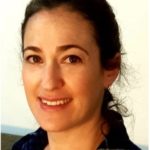
Keren Tadmor
Head of Microbiome Department. SGTech
Netanya, Israel
Area of work
Microbiology, Process Development
Bio
Role description
Managing the microbiome department which optimizes the waste treatment process by analyzing the active microorganisms by molecular biology and bioinformatic tools.
Why is female representation in biogas important?
I think that anaerobic digestion processes are perceived as being physical labor and therefore fewer women choose biogas as a career path. However, today thanks to automation, in-line sensors, analytic analysers and AI, enable to manage the processes with high precision and the operation and maintenance has become much easier to handle. This change in operations made it possible for more women to join and take part of the biogas development. As an example, at SGTech, I was the 3rd female to join (out of 18) back in 2018. Today, I manage an all-female department, 6 team members from different disciplines, chemistry, engineers, microbiology and data analyst. We work together and set the tone at discussions and decisions making. The change that I see at SGTech can and should be in every biogas company.
Career path
SGTech- 2020-Present Head of Microbiome Department
SGTech- 2018-2020 -Microbiologist and R&D
Hutchison Water- 2014-2018- Project manager
Educational background
Doctor of Philosophy (PhD), Microbiology and Molecular Biology, Tel Aviv University, Israel
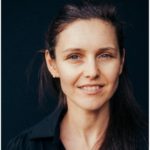
Katharina Pröstler
Gender, Environmental and Social Safeguards Specialist,
Also Gender and Youth focal point, Department of Energy at the United Nations Industrial Development Organization (UNIDO)
Vienna, Austria
Area of Work
Gender diversity, Environmental and Social safeguarding
Bio
Role Description
Katharina is responsible for promoting gender equality and the empowerment of youth and women, as well as for ensuring compliance with social and environmental safeguards of sustainable energy, climate change mitigation and adaptation projects. Her current focus is on catalyzing action to enhance gender equality and women’s empowerment for a just, inclusive and equitable energy transition.
Why is female representation in biogas important?
Energy is very important in women’s daily lives. Billions of women around the world still lack basic access to affordable, reliable, sustainable, and modern energy, negatively impacting their enjoyment of all their fundamental human rights, including their health, well-being, livelihoods, and local environment. Achieving sustainable energy for all is critical to the achievement of women’s human rights. At the same time, women have a critical role to play in achieving sustainable energy for all, but barriers in access to education, finance, career advancement, and insufficient involvement in decision making processes prevent them from leading, innovating, participating in, and benefitting from the clean energy transition on a level playing field with men. Ensuring access to clean, modern and sustainable energy solutions, such as biogas for women is a fundamental element of a just and inclusive energy transition.
Women should have equal opportunity to lead, participate in and benefit from biogas. It is well-documented that women in leadership positions enable companies to be more innovative, helping them to improve their overall performance. S&P 500 companies with higher numbers of women in senior management saw a 30% higher return on equity and a 30% lower earnings risk relative to lower-ranked peers. Therefore, enhancing gender diversity is not only a human right, but it also makes business sense.
Career Path
Katharina has over 11 years of professional experience as a project manager and in promoting sustainable and inclusive development, in particular climate change mitigation and adaptation. Katharina has worked in the private, public, and academic sector and at UNIDO she implemented projects in the area of cleantech innovation entrepreneurship and sustainable energy technologies in Thailand, in Lao PDR, in Cambodia, and in Vietnam. She has worked on promoting biogas in Cambodia and helped to set up a Biogas Technology and Learning Centre in the country.
Moreover, she has studied, lived, and worked in many countries, including Austria, Belgium, Cambodia, Ecuador, England, Germany, Laos PDR, Spain, and Thailand. She also acts as mentor for women and youth supporting the Global Women’s Network for the Energy Transition (GNWET) and the SDG7 Youth Constituency.
Educational Background
Katharina has a Masters’ Degree in Business Administration and Law, as well as a MSc in Environmental Technologies and International Affairs

Laís Alves Souza
Consultant, I Care & Consult; Leader of Mulheres do Biogás in Brazil,
São Paulo, Brasil
Area of Work
Sanitation, sustainability, energy recovery, strategy and planning, project management, biogas
Bio
Role description
I work as a Consultant at I Care & Consult since June 2022. For almost five years, I worked as planning assistant for Strategic Projects at Companhia de Saneamento Ambiental do Maranhão – CAEMA. I have recently started taking courses in the Ph.D. Program on Energy Systems Planning from UNICAMP.
I am an environmental engineer with a master’s degree in Energy Sciences. My research is focused on sanitation and energy recovery from waste. I am one of the leaders of the Mulheres do Biogás (Women in Biogas) initiative, supported by Instituto 17, an NGO in Brazil.
Why is female representation in biogas important?
Female representation in biogas will demonstrate that gender equality contributes to a more holistic perspective, developing a more sustainable and solid evolution of the sector for the next years.
Career path
I worked for two years at Geoflorestas, an environmental consultancy for the verification of renewable soy and sugar cane commodities production to reach international requirements and certifications, using geoprocessing. In 2020, I finished my Master in Energy Sciences focused on energy recovery from wastewater, with an emphasis on biogas. I worked for almost five years at Companhia de Saneamento Ambiental do Maranhão – CAEMA with strategic planning, project management, budget management, partnership management, sustainability reports (GRI), and data management. Nowadays, I work as a consultant at I Care & Consult.
Educational background
· 2017-2020 – Master’s degree in Energy Sciences from the Universidade de São Paulo – USP.
· 2009 – 2014 – Environmental Engineer degree from the Universidade Estadual Paulista ‘Júlio de Mesquita Filho’ – UNESP.
· 2013 – Exchange Program on Sustainability Science. Leuphana Universität, Lüneburg Germany.
· 2012-2013 – Exchange Program on Renewable Resources. Fachhoschule Bingen, Bingen, German.

Leidiane Ferronato Mariani
Consultant in Biogas;
Leader of “Mulheres do Biogás” in Brazil
Florianópolis, Brasil
Area of work
Biogas, sustainability and energy transition, Strategy and business management, Stakeholder engagement
Bio
Role description
I work as a consultant in projects of studies and planning of the biogas market in national and international cooperation projects in Brasil and Latin America. I have fifteen years of experience in biogas and sustainability, and I am an environmental engineer with a master’s degree in Territorial Management and a PhD in Energy Systems Planning. I am one of the founding leaders of the network “Mulheres do Biogás” (Women of Biogas), an initiative supported by Instituto 17, an NGO in Brazil.
Why is female representation in biogas important?
It is crucial to ensure diversity and, thus, to achieve the energy transition with gender equity and social inclusion.
Career path
I worked for seven years at the Itaipu Technological Park Foundation in watershed and biogas management projects. I worked as a researcher at CIBiogás during my doctorate. After that, I worked as an institutional relations manager at CIBiogás for about a year. Later, I was communication coordinator for RedBioLAC, the Latin American and Caribbean Biodigesters Network. Between 2020 and 2022, I worked as a leader in the waste to energy component at Instituto 17 – Brazil Energy Program (a British government programme) and as a technical consultant in the organization of the 4th Southern Brazilian Forum on Biogas and Biomethane. I am currently a consultant in biogas in Brazil on national and international projects.
Educational background
- 2014-2018 – PhD in Energy Systems Planning from the State University of Campinas.
- 2012-2013 – Executive master in Renewable Energy for Escola de Organización Industrial de Madri.
- 2006-2008 – Master’s degree in Territorial Management from the Federal University of Santa Catarina.
- 2002-2005 – Environmental Engineer degree from the Federal University of Paraná.
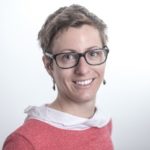
Lily Bernadet
New Business Development, Storengy
Northwich, United Kingdom
Area of Work
Business Development – Investments in Anaerobic Digestion Infrastructure
Bio
Role Description
Lily works for Storengy, part of the ENGIE Group, which is very active across the green gas supply chain from research and development through to the production, optimisation, and trading of the biomethane and associated co-products such as CO2.
“Whilst we are a very small team in the UK, we are supported by the wider ENGIE group expertise and ambition to play a significant role in the production and development of biomethane production sites in the UK.
“Storengy is currently storing and trading natural gas from its underground storage site in Northwich, UK. The process of producing biomethane is thus a new market for us and as such, the role is very versatile. It is like working for a start-up – we need to define and implement the strategy, grow, and transform the business as we start developing a portfolio of production sites – with sustainable investment in biomethane production infrastructure as our prime objective to actively contribute to the decarbonisation of the UK gas network”.
Why is female representation in biogas important?
I believe in equality. Everyone should have equal chances to learn, work, and be successful. Gender equality at work, especially in engineering and energy production is lacking behind. Regardless of our gender and personal background we should all have equal opportunities.
Career Path
Following a few roles in sales, Lily started her career in corporate communication for the global banking group BNP Paribas and then for the global defence group BAE Systems. A couple of years later, she transitioned to a project management role within BAE IT team. In 2014, she joined the energy group ENGIE as UK Bid Manager. Since 2014, she has held various management roles developing innovative energy proposals ranging from facility management, through to low carbon EV and H2 mobility, and the production of green gases hydrogen, and biomethane solutions.
In 2020 she joined ENGIE subsidiary Storengy to support them in entering the biogas market and diversify their activities.
Educational Background
Lily has a BA in Business and Administration from an Institute of Technology in France, a BA in Business Management in the UK, and has completed a master in Corporate Communications and Public Affairs.
She holds a certificate in Renewable Energy Management. She is also certified Project Management Practitioner.
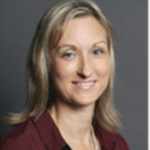
Linda Nordin
Senior Waste, Resource and Circular Economy Consultant, GHD
Queensland, Australia
Area of work
Development of circular, sustainable and financially efficient business models
Bio
Role description
I have both local and international experience having worked for Local Government Authorities in Australia, UK and Sweden and I have an exceptional understanding of risk mitigations with waste and recycling collection and treatment services, alternative waste technologies and the governance frameworks for the development and implementation of waste and resource recovery strategies. I also work with the mindset that there is not one solution fits all, but there is one solution for all.
In my current role, central to development and implementation has been a focus on developing circular and sustainable business models suitable that meets the clients’ needs in a financially efficient way.
Why is female representation in biogas important?
Technical categories usually has a high percentage of male representatives and the discussion can become very technical. I have found that you have to work harder as a female to be respected. This can also be positive as when you work hard you also become more and more knowledgeable over the years. Females very often work in this field, myself included, to support a bigger cause such as reducing the impacts of climate change. This is very important for the future and I believe that us females have a big role to play when it comes to communicate the role of biogas and the impact it can have on our communities (the world).
Career path
2020 – present
GHD – Australia
2013-2020
City of Gold – Queensland, Australia
Business Efficiency Officer then from 2017, Senior Waste Project Officer
2009-2013
Täby kommun – Täby, Sweden
Project manager Waste and Recycling
2003-2009
Sita UK (Suez) – London, UK
Recycling Coordinator & Manager
I have 18 years’ experience in waste management and practical understanding of how to build up a circular economy. I have long experience in planning and implementing Waste and Recycling services, focussing especially on developing a circular economy for Organics. I launched a green organic collection service in the UK in 2006, and food organic collection for Anaerobic digestion in Stockholm, Sweden in 2010. More recently, in 2018-19 I undertook a feasibility study and road map for FOGO services and implemented the first Council-operated commercial food waste service in QLD for City of Gold Coast to produce AS4454-compliant compost. Furthermore, I have participated in the development of sustainable precincts where modern technologies were used for example Insinkerators, Waste vacuum system, Dehydrators, Composters.
Over the years, I have worked with applying mathematics on waste management solutions to try and find cost-efficient yet innovative and circular solutions that can divert waste away from landfill, help us achieve net-zero and reduce human impact on climate change. I have found an particular passion closing the loop around Organics and how this material can be used for production of renewable energy, biofuel and a biofertilizer. I am excited to help Australia start its journey in this sector and to understand and explore more on how and if biogas also can be used to produce green hydrogen in the future.
I love seeing how society (over the last decade) is slowly changing from thinking that sustainability solutions and climate change is “just for green hippies” to now becoming part of the new norm and a must for our society to survive. Biogas production is part of this evolution.
Educational background
- Master’s in engineering in Industrial Management and Economy, specializing in IT systems, Technical University of Linköping (Sweden), Graduated year 1994-2000
- 1 year studies in pedagogy (the theory and practice of learning) Linkoping University 1998-
- Linda has also undertaken additional WHS studies and certificates, Life Cycle Analysis and Environmental Science.
- She speaks Swedish, French, English and German.

Maria Eduard Cação Rosa
International Analyst and Consultant;
Leader of Mulheres do Biogás in Brazil
Foz do Iguaçu, Brazil
Area of Work
Biogas, Energy Transition, Sustainable Development, Stakeholder Engagement, Gender Equality
Bio
Role description
I work as a consultant in the areas of stakeholder engagement, gender equality and social inclusion, communication, and international relations. I am one of the founding leaders of the network “Mulheres do Biogás” (Women of Biogas), an initiative supported by Instituto 17, an NGO in Brazil.
Why is female representation in biogas important?
Like in any area in society, women’s participation in the biogas sector is what makes it possible to reach its full potential. If we are to continue debating sustainable development and energy transition, women must be part of the discussion. Increasing female representation within the biogas industry requires the involvement of women from all over the globe and from diverse backgrounds.
Career path
I started my biogas career while still in college, becoming part of the International Center for Renewable Energies and Biogas (CIBiogás). In this institution, I was an Institutional Relations and Communication intern for two years. After graduation, I worked as a freelancer Communications Assistant for the Latin American and Caribbean Biodigesters Network (RedBioLAC). Between 2020 and 2022, I was a consultant on Stakeholder Engagement, Communication, and Gender Equality and Social Inclusion at the Brazil Energy Program (a British government programme) in the waste to energy component via Instituto 17. I am currently working as a consultant in the biogas sector on national and international projects.
Educational background
- 2022 – 2025 – Juris Doctor candidate at the New England Law Boston, with emphasis on International Law. Recipient of Justice Sandra Day O’Connor Merit Scholarship.
- 2016-2019 – Degree in International Relations and Integration from the Federal University of Latin American Integration (UNILA), with emphasis on International Law and Development in the Third World, Civil Society and Disarmament.
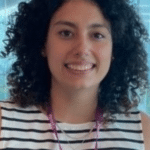
Paola Petry
Product Manager of Clean Energy and Renewables, Comgas – Natural Gas Distribution Utility
São Paulo, Brazil
Area of work
Open Innovation, research, biogas, biomethane, gender equality
Bio
Role description
With the Comgas, I am part of the “Plugue” team. This is an open innovation hub that seeks to help innovative projects come to fruition, connecting partners, startups, investors, universities and people from around the world to transform the gas and energy sector in Brazil. I am responsible for managing projects related to clean energy and renewables. Many projects I follow are in the area of biogas and biomethane, decarbonization and waste to energy. I am one of the founding leaders of the network “Mulheres do Biogás” (Women of Biogas), an initiative supported by Instituto 17, an NGO in Brazil
Why is female representation in biogas important?
The biogas sector, as well as others related to renewable energy, was born with greater ease to be more diverse and provide gender equality, as it is more connected with modern trends. However, there are still barriers for equal opportunities and recognition between men and women. Thus, initiatives such as this working group are important to dialogue with the biogas sector and build agendas to enable the continued growth together with actions for equality. Women need to have their skills recognized and expanded to be able to help the biogas sector to develop and also to pave the way for other productive segments that need to improve in terms of social inclusion, gender and diversity. This is a path to be traced collectively, showing that inclusion is fundamental for sustainable development.
Career path
At the University of Sao Paulo, I experienced different technical work themes involved with research and development projects. This base was important to work in the management of innovation projects, which I currently exercise at Comgas, the largest natural gas distribution utility in Brazil. During my master’s degree I started my studies in the area of energy planning and biofuels and taught classes related to energy transition and regulatory aspects. Subsequently, I worked together with projects and companies with consultancy and support for publications about biogas and biomethane sector in Brazil. I am currently in my PhD doing experiments with co-digestion of different substrates to optimize biogas production and I am part of the Brazilian “Women of Biogas” initiative, that also seeks to promote gender equality.
Educational background
- Master of Science (MSc) certified in energy planning by the Institute of Energy and Environment at the University of Sao Paulo
- 2011-2015 – Bachelor of Science (BSc), Chemical engineering by the polytechnic school from the University of Sao Paulo
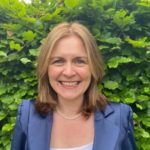
Rebecca Groen
Director of Sustainable Fuels, SHV Energy
VP Renewable Energy, International DME Association
Non-Executive Director, Circular Fuels Limited
Non-Executive Director, Dimeta
Hoofddorp, the Netherlands
Area of work
Sustainability, Business Development, Technology Acceleration & Innovation
Bio
Role description
I joined SHV Energy in January 2018 to set up and lead a new department to explore, develop & exploit routes for the group to reach its bold ambition of 100% renewably sourced fuels by 2040. My team focuses on scouting for new supply of bio-based and renewable fuels; researching novel, sustainable feedstock & conversion technologies; exploring new product options, managing a portfolio of sustainable fuel investments & assets and global stakeholder management. In 2021 we established two new JVs – Circular Fuels Limited and Dimeta. Circular Fuels Limited is a joint-venture between Dimeta and KEW Technologies, aiming to fast-track innovative Advanced Conversion Technology for renewable and recycled DME (rDME) production. The first dedicated rDME plant will be built in the UK in 2023, producing 50ktonnes/year of rDME for the LPG sector. This multimillion GBP investment will dramatically accelerate the ability of the LPG industry to reduce its greenhouse gas emissions. From a first commercial plant in the UK, Circular Fuels Limited already has plans to develop 5 other plants across Europe and North America over the next 5 years.
Why is female representation in biogas important?
Gas – particularly in easily transportable safe, efficient liquid form – is an essential part of the energy mix today. Our challenge and opportunity is to make the best use of all available feedstock and resources to produce biogas that can completely replace poor air quality and carbon intense fossil energy sources. This will take collaboration, perseverance, creativity and communication. Above all it will take the best brains and at least 50% of these are owned by females!
Career path
I’m currently enjoying my 27th year in industry having followed a rather eclectic career path. The first 11 years were in FMCG both on client and agency side learning how to get things done creatively, with multiple stakeholders and with a diverse team on time and in budget. Then the love affair with energy began when I joined GE Oil & Gas in 2006. I cut my teeth on subsea engineering and the wonderful complexity of energy. In 2012 I moved over to focus on renewable energy at the Dutch research lab TNO (called Energy Research Centre at that point) where I led Business Development for Biomass and Energy Efficiency in Industry. I joined SHV Energy in January 2018.
Educational background
- BA Hons Japanese & Business Studies
- Postgraduate Chartered Institute of Marketing accreditation
- Leadership courses including “Taking the Stage” which I would recommend to all Female Leaders
- Specialism in Non-Executive Director Governance
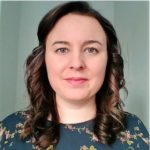
Sarah Stadnyk
Manager of Business Development and Communications, Canadian Biogas Association
Ottawa, Ontario, Canada
Area of work
Business Development, Communications
Bio
Role description
With the Canadian Biogas Association, I have several responsibilities that contribute towards the CBA’s goal of getting biogas to its fullest potential in Canada. I am focused on outreach activities that raise awareness of the sector including highlighting biogas technology and developments to members and broader audiences, and business development and project work to support the growth and implementation of biogas and RNG in Canada. I support advocacy efforts for relevant federal and provincial regulations and policies, and I am heavily involved in CBA’s project work that creates studies, guides, and reports that demonstrate the capacity of the Canadian biogas industry. I also field inquiries from members and gather their input, write and publish and monthly Biogas Digest newsletter, and execute tasks in CBA’s annual communications plan.
Why is female representation in biogas important?
Female representation has increased over the years in the biogas industry, but there is room for improvement. The biogas industry is dynamic and offers a career path that aligns with core values that prioritize a brighter future, such as reducing negative impacts on the environment and proliferating the use of clean technology.
Career path
My previous technical experience lends well to my current role in the biogas industry. During my time at the University of Waterloo, I had co-op jobs in different industrial laboratories which helped me get my first job out of university at a waste-to-energy plasma gasification plant. I worked at the full-scale demonstration plant, setting up the on-site testing lab, and sampling and testing material from the plant during operation runs. This experience fostered an interest in waste-to-resource technologies, and I sought out more experience by working on relevant projects for private and public agencies in technical, research, and business development capacities. These experiences led me to the CBA where I have been working since 2017. My familiarity of the technology and overall knowledge of the waste-to-resource sector is a key part of appreciating where biogas fits in the circular economy and renewable energy space and understanding the challenges our members face to identify potential solutions
Educational background
University of Waterloo, Bachelor of Science (BSc), Biochemistry, Co-op
University of Toronto, Certificate in Renewable Energy

Suad Said Al Hosni
Oman and MENA representative, Be’ah
WBA council member representing Oman, Middle East and North Africa
Seconded as a team leader for development of waste management plan at the Environment Authority, Oman
Muscat, Sultanate of Oman
Area of work
Business Development – Renewable energy (Biogas and Bioenergy)
Bio
Role description
Development of the Roadmaps of Biogas plants implementation for Electricity and thermal Energy production. Negotiate with the relevant stakeholders in different sectors for Power pricing, output offtake as well as to insure the availability of the organic waste from source. Prepare the biowaste guideline with support of the key Authorities.
Why is female representation in biogas important?
I gained most of my experiences in the biogas sector through the international visits to many international biogas production plants and companies specialized in this field in different countries, which I learned over time the importance of female interaction in this aspect, and their high ability to gain and share knowledge. The biogas sector, like any other sector, must thrive, with Gender-balanced experiences, which provide diversity of thought in work and promote knowledge sharing in large scale.
Career path
2022 – Until now: Secondment period as a team leader to develop the waste management plan, Environment Authority, Oman
2018 – Until now: Lead biogas Specialist, be’ah, Oman
2015 – 2018: Business Development executive, be’ah, Oman
Educational background
2013 – 2015: Master of Science in Process Engineering, Renewable Energy (waste to Energy field), National University of Oman in partial fulfilment of the VIT University in UK.
2005 – 2010: Bachelor of Science in Environmental Biology; Sultan Qaboos University, Muscat, Oman
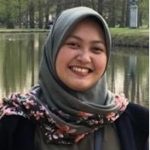
Tyas Putri Sativa
Bioenergy Advisor, GIZ Indonesia
Jakarta, Indonesia
Area of work
Biogas and biomethane from agro-industrial waste
Bio
Role Description
As bioenergy advisor, I am the focal point and person in charge of bioenergy related activities at GIZ Indonesia. The project I am working on is one of GIZ Indonesia’s energy programme. Our strategic partner is Directorate Bioenergy, Ministry of Energy and Mineral Resources. Here, I am responsible to do research and study related to bioenergy technologies under Indonesian market condition. I also initiate and develop cooperation with national and international stakeholders in promoting bioenergy development in Indonesia. I contribute and provide input for internal and external publications/reports related to bioenergy. Furthermore, I also involved in conceptualizing and arranging for capacity building such as webinars, FGDs, and workshops in close coordination with project counterpart.
Why is female representation in biogas important?
I personally think that women’s representation in biogas sector is essential. This is not only a matter of fairness, but also, I believe women could provide valuable perspectives especially in the decision-making process. The representation of women in biogas in particular – technical roles is also important to erase the knowledge gap between male and women. Furthermore, it could potentially give positive impact to the development of social and economic aspect.
Career path
My first professional job was to be a project coordinator at PT AES AgriVerde in Jakarta for one year. It is a company that focused on biogas technology. The company has several biogas installations in palm oil mills in which the feedstock come from palm oil mill effluents (POME). Initially, the revenue stream was generated from certificate emission reduction through the clean development mechanism (CDM). However, since the CO2/ton price dropped significantly, the business shifted to selling biogas to be sold to electricity grid.
During my master’s degree, I had the opportunity to do my master’s thesis at the Helmholtz Centre for Environmental Research (UFZ) in Leipzig for 8 months. The main topic of my thesis is on nitrogen removal using partial nitritation/anammox method in a pilot scale reactor.
To date, I am working as bioenergy advisor at GIZ Indonesia in Jakarta since 2020.
Educational background
I did both my bachelor and masters studies in environmental engineering study programme. I obtained my master’s degree at the Technical University of Munich in 2019 which focuses on two major topics: urban water system engineering and water food energy nexus.
Victoria Kay
Product Manager – Biogas Upgrading and CO2 equipment, Clarke Energy
Liverpool, UK
Area of work
Market research and procurement
Bio
Role description:
My role was created to encourage Clarke Energy’s various global offices to take part in tendering for biogas upgrading and carbon capture projects by researching and creating relationships with relevant suppliers, training/supporting global teams in the technical and commercial aspects of quotations and tracking developments in global biogas markets. Had I not had my previous experience in the proposals role I would not have held the rounded knowledge required for the Product Manager role.
Why is female representation in biogas important?
Career Path
Before I start on my professional career, I would like to note that I started part time work whilst still in education. From 16 I had two part time waitering jobs which empowered me to have financial independence and start building on the non-academic qualities that are vital for a professional career such as confidence, people skills, time keeping etc. Whilst the balance between education and part time work is very important, do not underestimate the importance of having experience outside of academia as ultimately, I have been told that this attitude to work is what helped my current employer make the decision to hire me.
My first professional job from university was as a Trainee Proposals Engineer with Clarke Energy. Clarke Energy supply, install and maintain reciprocating gas engines that are installed for various industry applications and on a large range of gases. A proposals engineer is responsible for reviewing customer specifications, starting to put together a concept engineering design then costing/presenting this design to the customer. The training for the role was very much a learn on the job type of scenario which in my opinion is the best way to learn! I progressed quickly from trainee proposals engineer (2013) to proposals engineer (2014-2016) and then to senior proposals engineer (2016-2021) who was responsible for all the proposals into Africa and the US. The nature of the proposal’s role is that it is multidisciplined and you require as much commercial knowledge as you do technical knowledge, and it really is a jack of all trades type of position. During my time as a proposal engineer, I had exposure to many varying types of applications but the one that interested me most was the biogas applications.
Educational Background
During primary and secondary education I was quite the know it all, I seemed to excel quite easily and was always in the upper percentile of the class. I first received a shock to the system when moving to college, the shift in the intensity of the subjects that I had chosen (Biology, Chemistry and Maths) was quite a difficult thing to deal with and certainly didn’t marry up with my high aspirations of becoming a medical doctor! During college there was a realisation of what my strengths where and it turns out after a shaky start, that was maths. With this realisation once I had received my A-Levels I applied for a maths degree and was successful with Manchester Metropolitan University (after going through the clearing process which was certainly a knock to my self-confidence!).
I had a good start on the BSc Mathematics course, but something did not feel like a good fit. I was used to dealing with pure maths and the course was starting to introduce applications such as finance/programming. After some careful consideration I decided this was not for me and I applied for a place on Manchester Metropolitan’s BEng Mechanical Engineering course. I was successful on the course and received a 2.2 Honours degree in the end (the dissertation was not my favourite!) and quite shortly after moved into my first role with Clarke Energy.
If there is anything that I take from my education is that whilst it is important and it introduces you to a vast amount of knowledge, ideas and skills, I was not in fact as academic as I initially thought. But with perseverance, I was ultimately successful with my grades and there were even greater qualities that I built on and these turn out to be a lot more important in your career path.
Did you miss our Open House event about the Working Groups?
Catch up by watching the video recording.
Express your interest in our Working Groups. Fill-in your details in the form below.

Follow us
Contact
Sustainable Bankside II
25 Lavington Street
London
SE1 0NZ
United Kingdom
info@worldbiogasassociation.org
+44 (0)20 3176 4414


